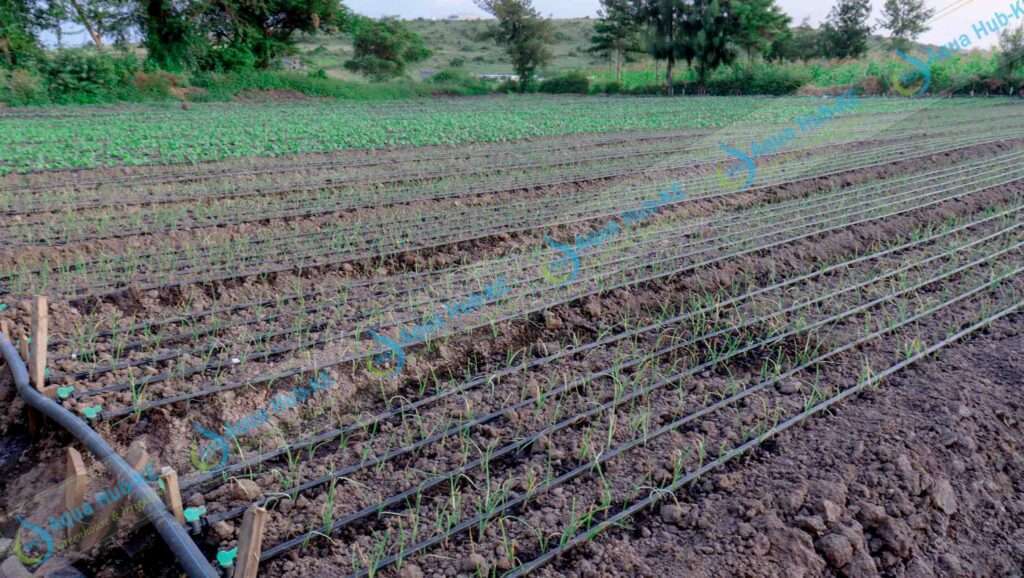Successful onion farmers in kenya,Onion farming has become a profitable venture in Kenya, with many farmers achieving success through modern practices and efficient marketing.
The growing demand for onions locally and regionally has opened up a lucrative market for these farmers.
By adopting modern farming techniques, ensuring quality production, and using effective supply chains, these farmers contribute to food security and boost local economies.
They create jobs and promote agricultural entrepreneurship. This article explores the stories of some of Kenya’s top onion farmers, highlighting their practices, challenges, and the positive impact on their communities.

Successful Onion Farmers in Kenya
Onion farming has become a success story in Kenya, with many farmers transforming their lives through this profitable venture.
As demand for onions grows locally and regionally, successful farmers have found ways to overcome challenges.
They adopt modern farming techniques and use innovative marketing strategies to thrive in a competitive market.
Profitable Agricultural Endeavor
Onion farming in Kenya shows the profitability of agriculture. The high demand for onions, especially in urban areas where consumers want fresh, quality produce, drives this success.
Farmers can earn between Ksh 30,000 and Ksh 300,000 per acre, depending on the variety.
Those who use modern farming practices often see returns that far exceed their initial investments, making onion farming a viable option for many aspiring entrepreneur
Innovative Practices and Modern Techniques
Kenyan onion farmers stay competitive by using innovative farming practices to boost yields and improve quality.
For example, drip irrigation helps conserve water while keeping the soil moist. This technique not only supports growth but also prevents diseases caused by overwatering.
Farmers also improve soil fertility with organic amendments, crop rotation, and precision farming. These methods produce healthier, stronger onions.
Modern technology, like soil testing kits and mobile apps, helps farmers make informed decisions about planting, irrigation, and harvesting.
Marketing Strategies and Supply Chain Efficiency
Successful onion farming in Kenya relies on strong marketing strategies. Many farmers now sell directly to local markets, supermarkets, and wholesalers, cutting out middlemen.
Farmer cooperatives have also formed, allowing farmers to share resources, knowledge, and improve their bargaining power when negotiating prices.
Social media and e-commerce platforms have changed how farmers connect with buyers.
By using these platforms, farmers can showcase their produce, build brand loyalty, and reach broader markets.
These strategies create efficient supply chains, ensuring onions reach consumers quickly while staying fresh and high-quality.
Promoting Agricultural Entrepreneurship
The success of onion farmers in Kenya benefits the wider agricultural community.
As farmers expand their businesses, they create jobs and encourage agricultural entrepreneurship, especially among youth and women in rural areas.
Training programs, workshops, and mentorships help aspiring farmers gain the skills needed for success in onion farming.
Successful farmers often invest in their communities by sharing best practices and providing access to quality seeds and inputs.
This creates a supportive environment, inspiring more people to view farming as a viable career.

Overcoming Challenges and Fighting Diseases
Onion farmers in Kenya face several challenges, such as pests, diseases, fluctuating market prices, and weather conditions.
Common diseases like downy mildew and bacterial blight can destroy crops if not managed properly.
To overcome these challenges, successful farmers use integrated pest management (IPM) strategies.
These include crop rotation, planting disease-resistant onion varieties, and applying organic pesticides.
Farmers also share knowledge and solutions within cooperatives and local groups, building collective resilience.
Farmers stay informed about market trends and price changes, helping them make better planting decisions.
By using platforms that provide real-time price data, they can adapt their strategies and reduce losses during low demand periods.
Addressing Cartels in the Onion Trade
In Kenya, onion farmers often struggle with cartels that manipulate prices and exploit them. These cartels make it difficult for farmers to enter the market on their own.
To fight this, many successful farmers are joining cooperative societies. These groups give farmers a stronger voice when negotiating with buyers and market players. By working together, farmers can resist cartel influence, secure fair prices, and expand their reach.
Farmers also advocate for policy changes that support fair practices and prioritize their welfare in the onion trade.
Conclusion
Kenya’s successful onion farmers show the potential of agriculture to drive economic growth and community development.
Through innovative practices, smart marketing, and a strong determination to overcome challenges, these farmers are shaping a thriving agricultural sector.
By promoting agricultural entrepreneurship and tackling market complexities, they are paving the way for a bright future in onion farming.
This growth benefits not only the farmers but also the entire economy.
